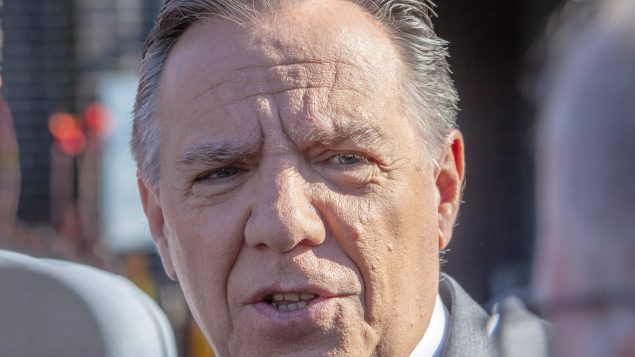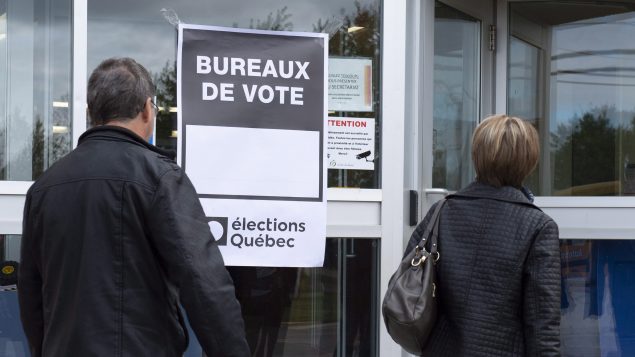Quebec voters are heading to polls on Monday in a provincial election that has the potential of radically reshaping the political landscape in Canada’s French-speaking province.
For the first time since 1976, a new party is set to challenge the status quo that has existed in Quebec politics for over four decades.
The majority of public opinion polls conducted prior to election day showed that the centre-right Coalition Avenir Quebec (CAQ) party has a good chance of unseating the governing Liberals led by Philippe Couillard and forming the next provincial government.

Coalition Avenir du Quebec leader Francois Legault speaks to the media after casting his ballot Monday, October 1, 2018 in L’Assomption, Que., as Quebecers go to the polls in the provincial election. (Ryan Remiorz/THE CANADIAN PRESS)
At the same time Parti Quebecois (PQ), the traditional sovereignist party, led by Jean-Francois Lisee, is seeing a lot of its support shift towards the more radical leftist and separatist Quebec Solidaire (QS) party and the CAQ, founded by François Legault, a former PQ cabinet minister.
Despite Legault’s missteps during the 39-day election campaign, the CAQ has managed to hang on to the all-important lead among francophone voters, which could power him to a majority in the National Assembly.
And the QS is set double the number of its seats in the provincial legislature.
The Liberals had 68 seats at the legislature’s dissolution, while the PQ had 28, the Coalition 21 and the QS three seats. There were five Independents. Sixty-three seats are needed to form a majority.

Quebec Liberal Leader Philippe Couillard and his wife Suzanne Pilote, right, walk to a polling station to cast their ballots, Monday, October 1, 2018 in Saint-Felicien, Que. Quebecers are going to the polls in a general election. (Jacques Boissinot/THE CANADIAN PRESS)
While Quebec’s economy has surged in recent years, opinion polls have suggested for months that voters are looking for a change after 15 years of nearly continuous Liberal rule.
The Liberals have been in power since 2003, with the exception of a 19-month PQ minority government between 2012 and 2014.
With the PQ promising to not hold a sovereignty referendum in the next four years if it wins the election, the campaign focused on immigration, health care and the best way to spend the province’s billions in budget surpluses.
In Quebec, more than five million people are eligible to cast ballots. The province regularly sees turnout rates of more than 70 per cent.
Polls close at 8 p.m. local time.
With files from The Canadian Press







For reasons beyond our control, and for an undetermined period of time, our comment section is now closed. However, our social networks remain open to your contributions.